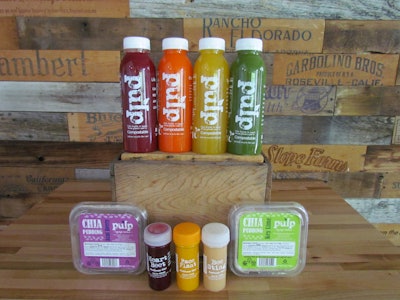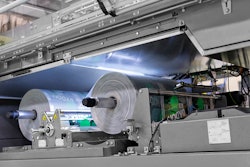
High pressure processing (HPP) is helping Thomas Kreitlow grow his business in more ways than one. The president and founder of Salt Lake City-based Pulp Lifestyle Kitchen is not only using HPP to enhance the safety and shelf life of the brand’s cold-pressed juices, but has created a complementary, lucrative second revenue stream by opening Intermountain HPP, a third-party provider of HPP services.
Kreitlow opened Pulp Lifestyle Kitchen in 2012 initially as a juice bar. He has since opened three more units of the fast-casual restaurant concept in Utah, expanding the menu to include sustainable and healthy meals. To prepare the brand for further growth, Pulp Lifestyle Kitchen began looking into using HPP in 2018 to boost sales of its cold-pressed juices at its restaurants as well as sell the product at grocery stores and other restaurants.
The company had never used pasteurization on its cold-pressed juices in order to maintain the product’s natural and nutritious integrity. But the juices only had a short shelf life of five days. As a nonthermal, natural form of pasteurization, HPP was ideal for extending the shelf life of Pulp Lifestyle Kitchen’s juices and killing foodborne bacteria like listeria and E. coli in the product without using chemical preservatives or sacrificing flavor and nutrition—a process that aligns with the company’s clean label brand identity and works well with its minimally processed products, according to Kreitlow.
“Even though we can sell our juices in our restaurants without pasteurizing them, we can’t sell them to third parties without some kind of pasteurization,” Kreitlow says. “So we knew that just making juice for the [Pulp Lifestyle Kitchen] stores didn’t make sense financially. We’d have to do it on a larger scale. In order to do that, we would have to embrace some form of pasteurization technology. And the only thing that really works for cold-pressed juices that doesn’t destroy their nutritional value is high pressure processing.”
 Pulp Lifestyle Kitchen uses high pressure processing on its cold-pressed juices as well as its wellness shots and chia puddings, helping to boost sales of those items.Photo courtesy of Pulp Lifestyle Kitchen.
Pulp Lifestyle Kitchen uses high pressure processing on its cold-pressed juices as well as its wellness shots and chia puddings, helping to boost sales of those items.Photo courtesy of Pulp Lifestyle Kitchen.
Pulp Lifestyle Kitchen had initially been interested in setting up an in-house HPP operation, but that type of system required an exorbitant capital investment. The company decided to test the waters first to determine if HPP was right for its products. It contracted with an HPP toller in Los Angeles in 2019 based on a recommendation from Hiperbaric, a Miami, Fla.-based company that manufactures HPP equipment.
Every week Pulp Lifestyle Kitchen transported between 3,000 and 6,000 bottles of cold-pressed juices via refrigerated trucks to the Los Angeles toller, which uses Hiperbaric equipment. By using HPP, Pulp Lifestyle Kitchen has been able to significantly extend the shelf life of its cold-pressed juices from five days to 90 days. The process also achieves a 5-log reduction in pathogens. As a result, the company can sell its products to grocery stores and restaurants as well as to at-risk populations like pregnant women and the elderly, who shouldn’t consume raw juices that have not been pasteurized.























